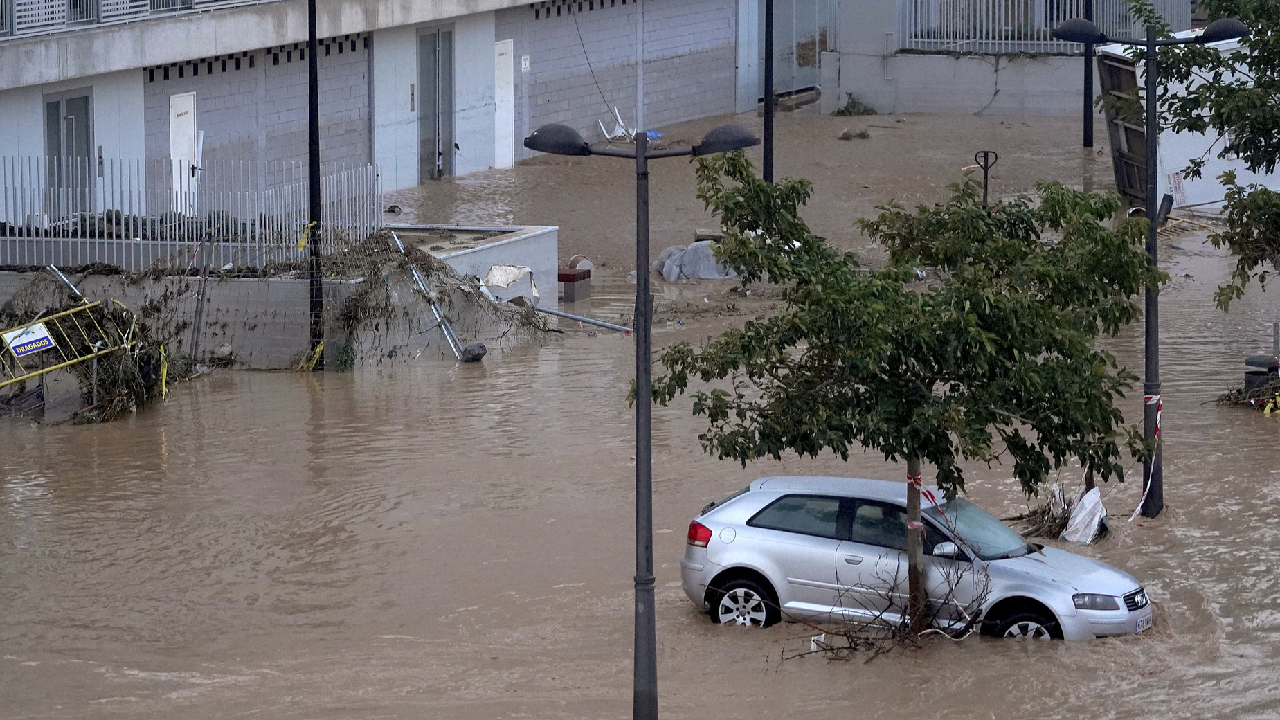Rescuers report that flooding in Spain's Valencia region has killed 51 people
At least 51 people have lost their lives in the eastern region of Valencia, Spain, due to flash floods that have engulfed cars, transformed village streets into torrents, and disrupted rail and highway services. This disaster marks the worst natural catastrophe to impact the European nation in recent times.

Emergency services in Valencia confirmed this tragic death toll on Wednesday.
On Tuesday, rainstorms led to flooding across a vast area of southern and eastern Spain. Dark, muddy water surged through streets, carrying vehicles at alarming speeds, while debris like wood and household items swirled in the currents. Police and rescue teams used helicopters to rescue individuals trapped in their homes and cars.
Authorities had reported several missing persons late Tuesday; however, the following morning revealed the devastating update that many had been found deceased.
More than 1,000 soldiers from Spain's emergency response units were dispatched to assist in the affected areas.
"Yesterday was the worst day of my life," remarked Ricardo Gabaldón, the mayor of Utiel, a town in Valencia, during an interview with national broadcaster RTVE. He indicated that several individuals remained unaccounted for in his community.
"We were trapped like rats. Cars and trash containers were flowing down the streets. The water was rising to three meters," he recounted.
While Spain has dealt with similar autumn storms in previous years, nothing could compare to the destruction witnessed in the last two days.
The death toll may continue to climb as other regions have yet to report their fatalities, and search and rescue operations are still underway in remote areas. In Letur, a village in the neighboring Castilla La Mancha region, Mayor Sergio Marín Sánchez stated that six individuals were missing.
Additionally, a high-speed train carrying nearly 300 passengers derailed near Malaga; fortunately, rail authorities confirmed that no injuries occurred. Service between Valencia city and Madrid was halted, along with several commuter lines.
Regional President Carlos Mazón emphasized the importance of individuals remaining indoors to not hinder rescue operations, as road travel was already challenging due to fallen trees and damaged vehicles.
"The neighborhood is destroyed; all the cars are on top of each other. It's literally smashed up," shared Christian Viena, a bar owner in the Valencian village of Barrio de la Torre, via phone. "Everything is a total wreck; everything is ready to be thrown away. The mud is almost 30 centimeters deep."
In response to the disaster, Spain's central government established a crisis committee to better coordinate rescue efforts.
By late Wednesday morning, the heavy rain in Valencia had diminished, although further storms were anticipated through Thursday, according to Spain's national weather service.
Spain is still in recovery from a significant drought that occurred earlier this year. Experts suggest that the increase in extreme weather events may be related to climate change.
Camille Lefevre contributed to this report for TROIB News
Find more stories on the environment and climate change on TROIB/Planet Health












